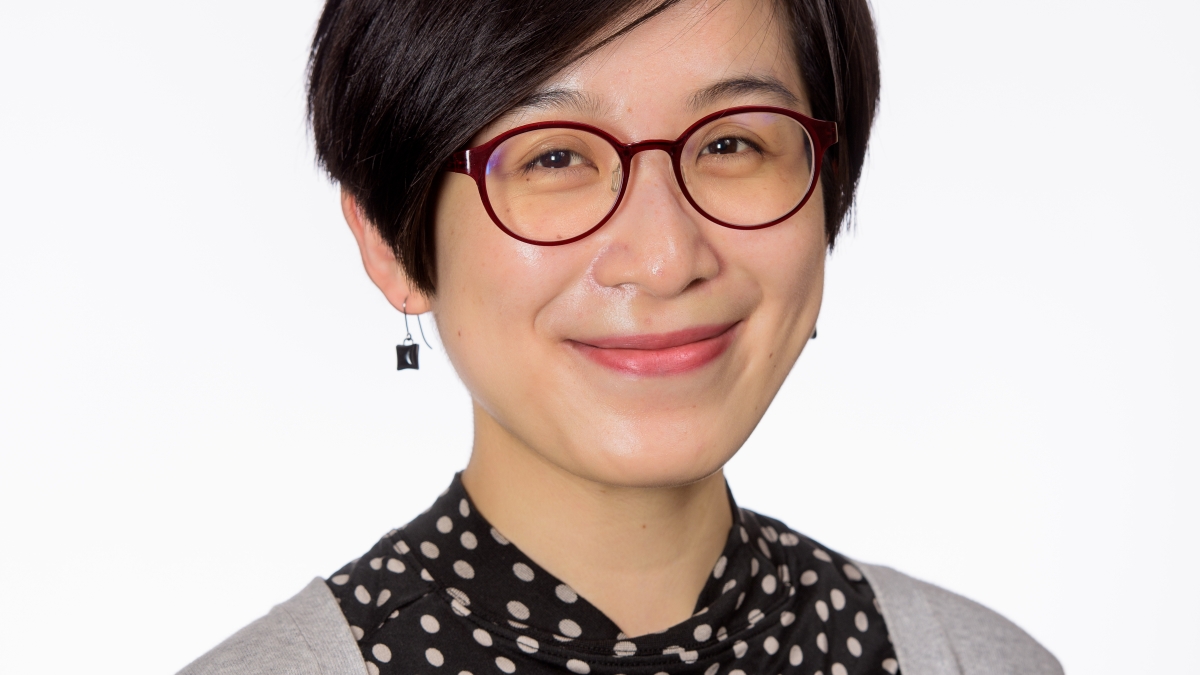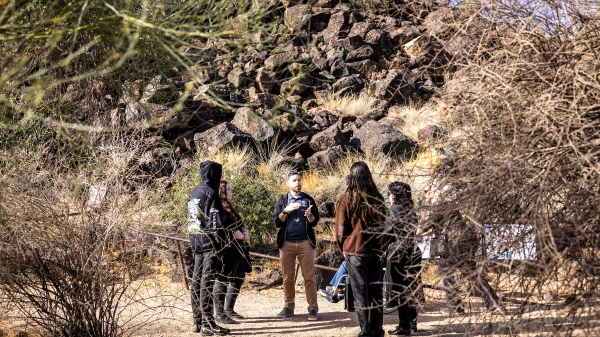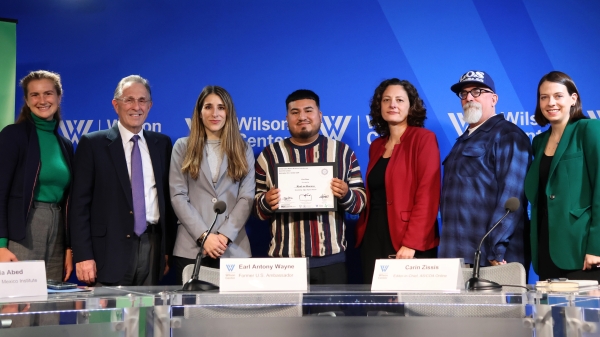ASU student steps out of comfort zone for new opportunities

Yining Tan is pursuing a doctoral degree in geography from the School of Geographical Sciences and Urban Planning in the College of Liberal Arts and Sciences at ASU.
Doing what's safe may be easy, but sometimes taking a chance can make all the difference.
Arizona State University has students from all around the world stepping out of their comfort zone to explore new ways of thinking for a better future, and Yining Tan is a prime example.
Currently pursuing a doctoral degree in geography at the School of Geographical Sciences and Urban Planning in the College of Liberal Arts and Sciences, Tan is working on multiple research projects, conference presentations and international policy work.
Originally from China, Tan grew up in a small, inland town with little opportunity to learn and grow, she said. Tan began traveling at a young age between her small-town home and various cities where her father worked. During these years, she was exposed to the inequalities between rural towns and the bustling coastal cities of China.
“The coastal areas are typically more economically developed than the inland areas,” Tan said. “There are many job opportunities over there, and when I was very young, my dad went to work as one of the millions of internal migrants in China in the early 1990s.”
For the rest of her adolescence, Tan continued to migrate between her rural home, where she lived and attended school, and the cities in which her father worked. Despite the vast economic disparities between the two landscapes, Tan said she did not begin to recognize their inequalities until she moved away for college in Guangzhou and began interacting with her new peers.
“All of my other classmates who grew up in the coastal cities had received better education than me,” Tan said. “They knew more things than I did. They were into performing arts and visiting museums, but I never had the opportunity for any of that when I was young.”
When Tan had the opportunity to study abroad in the United Kingdom, she took it. The experiences of traveling in Europe on her own and meeting people from different countries broadened her horizons and inspired her to earn her graduate degree in the United States.
After receiving a Master of Planning from the University of Southern California, Tan returned to China and became a research editor for two years. This experience motivated her to further her education. She decided to attend ASU where she could earn her doctorate, revisit her fascination with migration and conduct her own research.
Tan said she chose ASU and the School of Geographical Sciences and Urban Planning because it was the perfect combination of her interests in migration studies, geography and urban planning, all of which she had become invested in from her own personal migration experiences.
“Because I am in such an interdisciplinary field, I get the opportunity to work with great faculty and students from other schools within the university, such as the School of Human Evolution and Social Change,” she said. “ASU is a very collaborative environment within and beyond my own department.”
Since beginning her doctoral program at ASU, Tan has become involved in various research projects and committees. She is currently a research associate for Professor Wei Li, who conducts research on highly skilled migration, transnational connections and minority-community development with a focus on the Chinese and other Asian groups in the Pacific Rim. Tan has been working on multiple projects such as researching how to alleviate the “brain drain” situation in India and China, where highly skilled professionals are leaving their home countries and not returning to contribute to their communities.
In addition, Tan is also involved in her own research projects focused on highly skilled foreign professionals, their migration patterns in developing countries, and the causes and factors behind these trajectories. She assists the Center for China and Globalization, a major Chinese think tank, in deciding what instruments would be useful in policy-making to attract highly skilled foreign professionals back to China.
Tan attributes stepping outside of her comfort zone as one of the driving factors for her current successes and offers the same advice to students currently working toward their degrees.
“I think it is important for students, particularly international students, to be self-determined and get their voices heard,” she said. “There were a lot of situations where I wasn’t 100 percent sure I was ready for something, but you only learn things by starting to do them.”
Tan was unsure if she was prepared to apply for the chance to present her research at the International Metropolis Conference last September. However, with encouragement from her advisors, hard work and the bravery to migrate out of her comfort zone, she was awarded the fellowship to fly to the Netherlands and present her research.
Tan continues to work on her dissertation and multiple projects, but she hopes to graduate soon. Despite her seemingly endless string of academic endeavors, Tan makes a point of not losing herself in her work. She said one of the most surprising things she has learned at ASU is “work alone does not define you.”
“You are a whole, human being …,” she said. “Have a good balance between work and life, and don’t get too overwhelmed. If there is an opportunity you think you might not be ready for, go for it. You don’t know until you try.”
More Arts, humanities and education

Petroglyph preserve celebrates 30th anniversary with ancient, modern tales
The Deer Valley Petroglyph Preserve provides a beautiful walk through a pristine desert where chuckwalla lizards are as plentiful…

Kaleidoscope short film contest inspires powerful binational filmmaking in its second year
“We come to this country not to steal anybody’s jobs but to take advantage of the opportunities that the rest ignore. We’ve been…

ASU's Neal Lester reflects on life, death of poet Nikki Giovanni
When Neal Lester heard on Monday that poet and activist Nikki Giovanni had died, the news hit hard.Lester, the founding director…